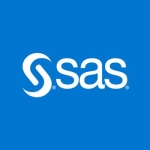In terms of use case, we implement Microsoft Azure Machine Learning Studio using Python libraries, so basically, we have a centralized studio where we just have to drag and drop features and create the model out of the data that we have. Microsoft Azure Machine Learning Studio is pretty easy to use even for people who don't know much about coding. They just need to know the features and libraries, so it's similar to Tableau and Alteryx because users can drag and drop features to create models or pipelines. We create and deploy pipelines through Microsoft Azure Machine Learning Studio.
What I like best about Microsoft Azure Machine Learning Studio is that it's a straightforward tool and it's easy to use.
Another valuable feature of the tool is AutoML which lets you get better metrics to train the model right and with good accuracy. The AutoML feature allows you to simply put in your data, and it'll pre-process and create a more accurate model for you. You don't have to do anything because AutoML in Microsoft Azure Machine Learning Studio will take care of it.
Microsoft Azure Machine Learning Studio worked okay for me, so right now, I don't have any room for improvement in mind for it.
What I'd like added to Microsoft Azure Machine Learning Studio in its next version is a categorization for use cases or a template that makes the use cases simple to map out, for example, for healthcare, medical, or finance use cases, etc. This would be very helpful for users of Microsoft Azure Machine Learning Studio, especially for beginners.
I've used Microsoft Azure Machine Learning Studio in the past year in my previous company, though I'm unsure about which version I was using at the time.
The functionality of Microsoft Azure Machine Learning Studio, specifically its underlying computing power, was managed by Azure, so stability-wise, it's a good solution.
Microsoft Azure Machine Learning Studio is a scalable tool. My previous company was on a volume-based model with it, and even if the data is large, it's easy to scale.
The company decided to go with Microsoft Azure Machine Learning Studio because of the partnership with Azure Cloud, so it's a way to leverage all features. The data was also hosted on the Azure platform, which made it pretty straightforward to use Microsoft Azure Machine Learning Studio rather than integrate with other tools.
Setting up Microsoft Azure Machine Learning Studio was very easy and is comparable to how easy it is to use any feature available in the tool.
Configuring the pipeline takes just ten to fifteen minutes, but that would still depend on the data volume.
My team didn't deal with the licensing for Microsoft Azure Machine Learning Studio, so I'm unable to comment on pricing, but the money that was spent on the tool was worth it.
Approximately two hundred to three hundred people, mostly part of the data analytics team, were using Microsoft Azure Machine Learning Studio within the company.
My advice to anyone using Microsoft Azure Machine Learning Studio for the first time is to have an understanding of machine learning, deep learning, and libraries. You should also know the scripts because features are created on top of the machine learning libraries used in Python. If you want more optimizations or a better accuracy rate, you need a proper understanding of machine learning or a machine learning background before using Microsoft Azure Machine Learning Studio.
I'm rating Microsoft Azure Machine Learning Studio eight out of ten because it still needs some improvement. For example, because the drag-and-drop feature of the tool was written or based on Python, when you're creating a model in Microsoft Azure Machine Learning Studio, you'll get good accuracy by writing the script in Python, so accuracy isn't standard. You can customize your metrics to get good accuracy, but what you'll get is completely generalized, so whatever use case you feed into the pipeline, it'll create a test to get good accuracy, but it'll not give you a guarantee that this will be the only accuracy you'll get.
The previous company I worked in was a partner of Microsoft Azure Machine Learning Studio.




















